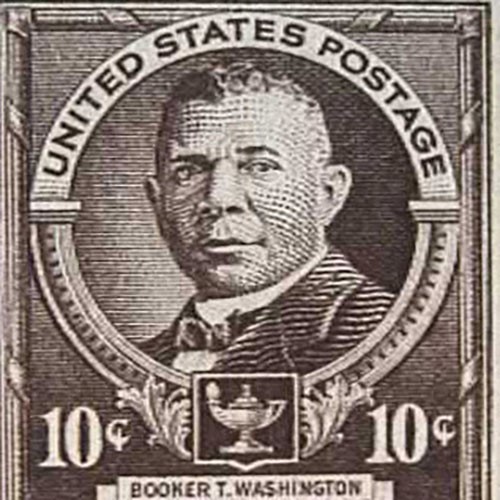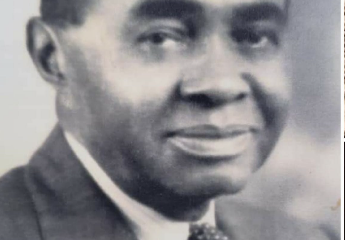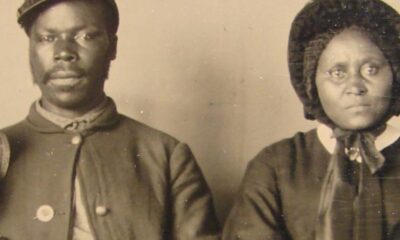Featured
Playwright August Wilson’s Stamp Is Still Going Strong. But It Began With Booker T. Washington

Playwright August Wilson is the latest honoree in the United States Postal Service’s Black Heritage Series. Wilson’s stamp is a Forever stamp and was introduced virtually in February 2021 during a surge of COVID-19. Roy Betts at the USPS said the stamps in the Black Heritage Series sell quickly especially during Black History Month.
The first stamp honoring an African American was unveiled on April 7, 1940, and it featured Booker T. Washington as part of the Famous American Series. Almost 40 years later, the United States Postal Service started the Heritage Series with a tribute to Harriet Tubman. The Series includes Frederick Douglass, Madame C.J. Walker, the Buffalo Soldiers and dozens of other prominent African Americans and events.
But the decision to place an African American, Washington, on a stamp was the result of a sustained campaign. According to the Postal Museum’s website, “Major Richard Robert Wright, Sr., among others, had aggressively lobbied for a stamp honoring Booker T. Washington since Roosevelt took office in 1933. When Wright read the POD’s decision to feature Washington on the 10¢ stamp, announced in 1939, he reflected with gratification, [the stamp] “comes pretty nearly within the limit of seventy-five years of Negro Emancipation.”

Will It Sell?
Wright was concerned the stamp price was too expensive and preferred seeing it as “one of the lower-priced, more affordable denominations used by the public daily.” He reportedly was concerned the cost “will not induce a large first day sale … among colored people.”
News reports indicate African American institutions around the country wanted to host the ceremony introducing the stamp. The Post Office Department, as it was known at that time, selected Tuskegee Institute founded by Washington in 1881. Postmaster General James Farley attended the watershed event and placed a wreath afterwards at Washington’s tomb.
There was such enthusiasm for the new stamp that two official second day issue ceremonies were held: one in Philadelphia and the other in New York. It was an unprecedented decision. Major Wright, who was unable to travel to Tuskegee, attended the Philadelphia event where he purchased 1,000 stamps. Also a prominent African American, Wright – like Washington – had been born a slave. He had managed to create a niche as an administrator, community leader and banker after his military service in the Spanish-American War.
Wright’s dedication paid off exponentially, resulting in almost a century-long recognition for Black Americans. His selfless campaign supporting a stamp for Booker T. Washington helped pave the way for an entire nation to honor the achievements of men and women who have made significant contributions to their country.

-

 Black History5 months ago
Black History5 months agoThe untold story of a Black woman who founded an Alabama hospital during Jim Crow
-

 Featured9 months ago
Featured9 months ago‘No Closure’ In Town Where Five Black Residents Were Either Murdered, Died Suspiciously Or Are Missing
-

 Black History10 months ago
Black History10 months agoBlack History Lost and Found: New Research Pieces Together the Life of Prominent Texas Surgeon and Activist
-

 Featured9 months ago
Featured9 months agoFounder of “The Folding Chair” Podcast Calls Montgomery’s Brawl ‘Karma’
-

 Featured9 months ago
Featured9 months agoThousands ‘Live Their Dream’ During National Black Business Month
-

 Featured11 months ago
Featured11 months agoJuneteenth And ‘246 Years Of Free Labor’ Are Key To Conversations About Reparations







